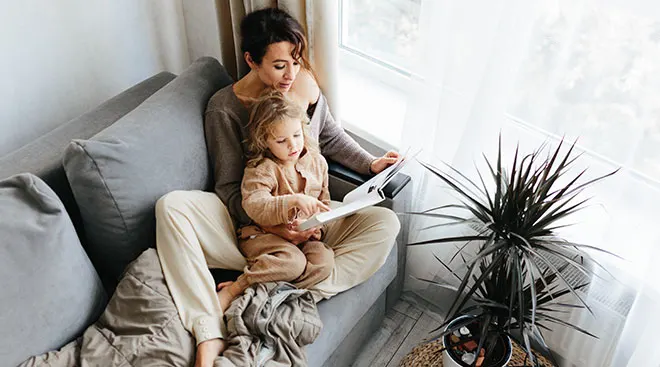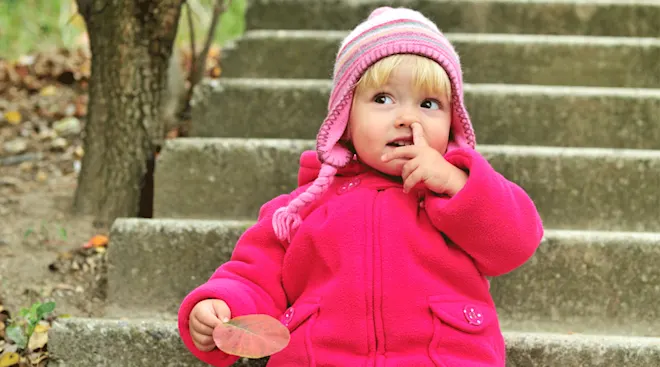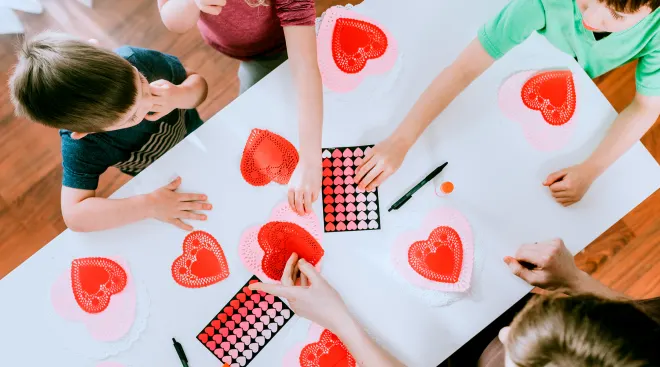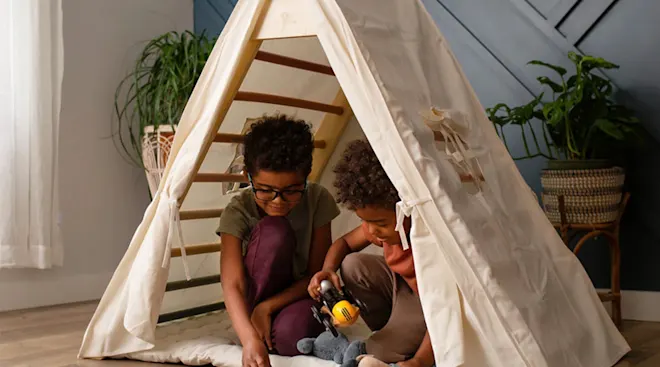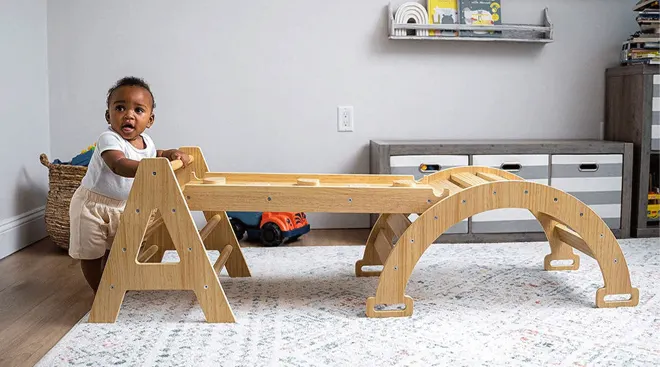4 Ways the Montessori Method Can Benefit Children With Special Needs
The Montessori philosophy is rooted in observing and meeting a child where they are on their unique developmental journey, and it can be a wonderful learning experience for a child with special needs.
To learn more about how the age-old method of education could help, the Monti Kids Learning Team connected with Amorette French who is an Autistic parent of two 22-month-old girls, and Jennifer Theriault, LCSW and certified child psychotherapist, to share perspectives on why parents of children with special needs may want to explore incorporating Montessori at home.
A Montessori environment is prepared in an organized and thoughtful way, which allows children to focus on the task at hand, while setting them up for success. For example, instead of packing a play space with bins of toys and loose parts, Montessori families prefer to present their child with a curated selection of 6-8 toys, placed on a low shelf. The calm and soothing environment can be appealing to a child with special needs. “If something is overwhelming, they can stop and move on,” says French. In addition the materials can be easily manipulated, allowing for a multi-sensory approach to learning. “(We know this is) extremely important when working with children who might need more than one way to learn and understand concepts,” adds Theriault.
While light up toys may be too stimulating for both children with special needs and neurotypical children, Montessori materials are intentionally designed, and avoid overwhelming a child who is sensory sensitive. “Montessori sensorial materials and activities are designed to isolate the senses, to experience them individually. This helps prevent the child, especially one who has sensory processing sensitivity, from being negatively affected,” explains French. Monti Kids provides level-based subscription boxes and materials that are natural, non-toxic and safe and allow for oral and tactile exploration as a child learns. French adds, as a caregiver observes a child through the Montessori lens they will better understand what stimuli a child may be sensitive to. “If a child repeatedly expresses upset over something in particular, say rough fabrics or particular noises, this provides awareness and allows the parent to make changes to their environment if necessary.”
Instead of focusing on milestones, the Montessori Method encourages parents to follow the child by observing their developmental needs and interests and preparing an environment to meet them. For the special needs community this may mean ignoring age guidelines when it comes to specific toys. Instead, parents are encouraged to observe their child, and present them with developmentally appropriate materials to set them up for success. French stresses, “Don’t follow what their peers are doing but what they are able to do. And respect them. If something is upsetting or a trigger, respect that and don’t try to force it.”
As children get to the school-aged level, parents of children with special needs may recognize their child learns better in a flexible environment that is less focused on formalized tests and grades. Theriault notes, “We are learning more and more all the time about the importance of respecting people’s differences and offering an inclusive environment in which children are encouraged to express themselves and develop their innate abilities.” A Montessori education celebrates differences and accepts children as their unique selves on their own paths of development.
To learn more about how to incorporate Montessori at home in a way that best serves your child, team up with your caregivers and start planning for their Montessori journey. To learn more about the Montessori method, visit MontiKids.com.
About the Experts:
Jennifer Theriault, LCSW: Theriault is a psychotherapist that works with adults, adolescents and children, teaching how to use cognitive behavioral strategies to address specific issues. When appropriate for young children, she also uses play therapy to work through issues a young patient may not be able to explore verbally. Prior to opening her private practice, Theriault worked as a licensed clinical social worker for over 20 years, working in outpatient clinics, hospitals, group homes and school settings. As a mom to a child with cerebral palsy, she also works as an advocate for the Collaborative Advocacy Associates, which supports families in getting appropriate special educational services for their children. Theriault earned her Master of Social Work (MSW) degree from New York University’s School of Social Work in 1995.
Amorette French: French, who self-identifies as austistic, is the author of Hello, I Have Autism: (An Autistic Children’s Guide—and for those who care—from an Autistic). She’s also a mom to two 22-month-old girls. She’s raising her daughters by the Montessori philosophy and, together with her husband, founded French Family Workshop, which creates Montessori and Waldorf style toys. You can follow her on her parenting journey on Instagram @french.family.montessori.
Please note: The Bump and the materials and information it contains are not intended to, and do not constitute, medical or other health advice or diagnosis and should not be used as such. You should always consult with a qualified physician or health professional about your specific circumstances.
Plus, more from The Bump:
Navigate forward to interact with the calendar and select a date. Press the question mark key to get the keyboard shortcuts for changing dates.

































